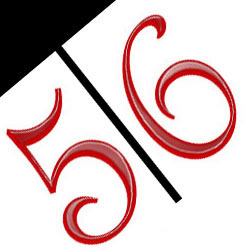

2002/2003
Special Double Issue
The Uses of Religion
| Crossings #5/6 |
| Supplies are limited. To order a copy please send a check or money order for $11.00 (international orders add $10.00 for postage) made payable to "Crossings acct. 50-370" to: |
| . |
| Crossings |
| Department of English |
| Binghamton University |
| Binghamton, NY 13902-6000 |
Table of Contents
| Michael
M. Logan and |
Introduction:
Colonial Utility and the Dread Uses of Religion in Critical Practice |
| Frederic M. Dolan | The
Really Hard Problem: Consciousness, Gnosis, and the Limits of Explanation |
| William Cook | The
Destructive Power of Myth |
| Robert Oventile | (Im)possible Reading: The Second Commandment and Moses' Delay |
| Regina McAloney | The
Catholic Monster in the Gothic Novel: Matthew G. Lewis' The
Monk and Anne Radcliffe's The Italian |
|
Michael Lackey
|
American
Prayer: A Spiritual Exercise in Race and Gender Subjection in
Nella Larsen's Quicksand |
| Jennifer Ballangee | The Wound That Speaks: Prudentius' Peristaphanon Liber and the Figure of Suffering |
| Tuire Valkeakari | Secular Riffs on the Sacred: Religious Reference in Invisible Man |
| Robert C. Thomas | Remnants of the World: Agamben and Messianic Affect |
| Jeanette McVicker | Review
of Translating Kali's Feast: The Goddess in Indo-Caribbean Ritual
and Fiction, Stepanos Stephanides with Karna Singh |
Call for Papers
| Currently religion generates grist for critical writing, as evidenced by recent publication of work on religion, spirituality and the sacred by Jacques Derrida, Gianni Vattimo, Paul Ricoeur, Michel Foucault, Giorgio Agamben, and Slavoj Zizek, and by the proliferation of calls for scholarship relating to religion that appear so often on public list-serves and bulletin boards. Crossings seeks essays that explore interconnections between religion, science, art, cultural politics, philosophy and critical methods. We invite essays on religion as a nexus for disciplinary power, or arguments about how religion functions as a discursive practice among others relevant to the production of subjectivity and technologies of the self. We encourage papers that discuss how re-definitions of the disciplines, and dialogues between the sciences, humanities, and other disciplines, might interpret religion in terms of its language, social practices, and epistemic relays. How has religion undergone re-inscription or redefinition throughout the postmodern paradigm shift? How might we understand religion, its disciplines, and disciplinarity through expositions of global transnational captial and the and the recent advancement of such critical projects as Michael Hardt and Antonio Negri's Empire? In what ways has religion always been affiliated with imperial desire for a complete global territory? Does the recent revelation of Empire's having gone beyond national interests provide any sacred "safe place" for the writing of praxis beyond or beneath secular humanist efforts for social justice? Or has the critical terrain itself been colonized by the judgement of God? Has global Latin-ization marked a stoppage of thought at the place where Roman and Christian conflict begins? Does secular faith in rights of intervention present new dangers? Are the tools ready-to-hand merely blunted coal-shovels from humanist dustbins? Will we understand power for what it is, or will a new league of faithful post-humanists prove unable to resist temptations by schizophrenic serpents?
|